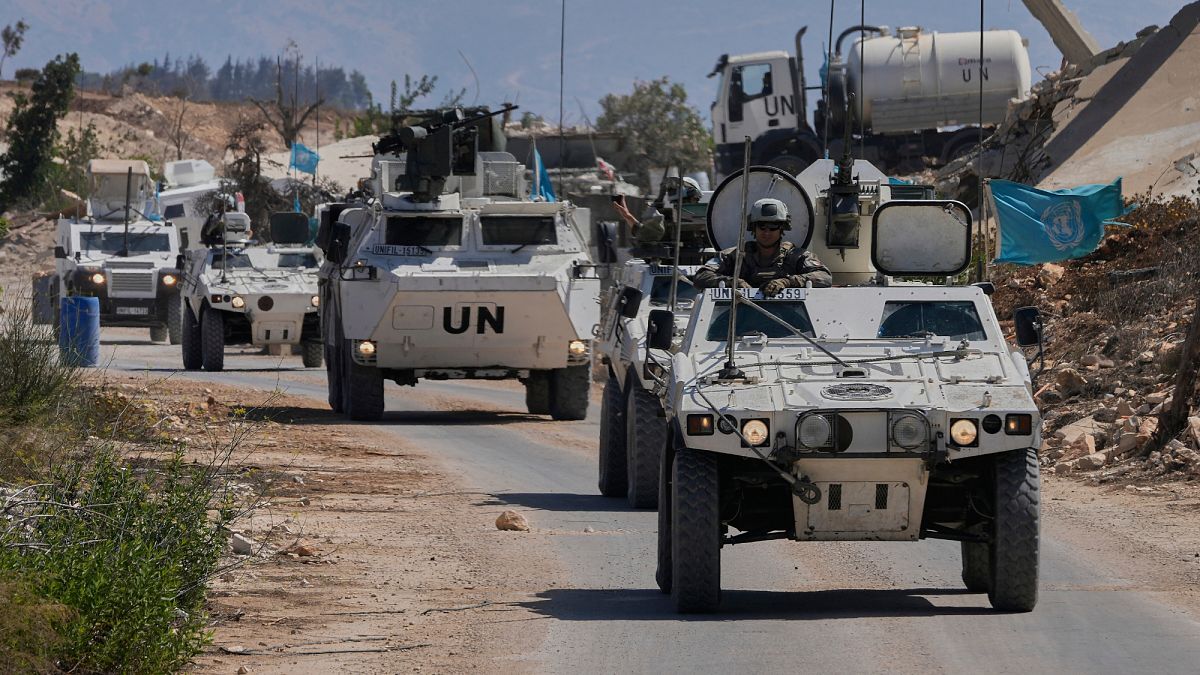Published on
The UN Security Council voted unanimously on Thursday to terminate the UNIFIL peacekeeping force in southern Lebanon at the end of next year after nearly five decades, bowing to demands from the United States and its close ally Israel.
The United States initially demanded that the force be ended in six months and later sought a one-year final extension. UNIFIL will now fulfil a final 16-month mandate to continue its activities near Lebanon’s UN-drawn border with Israel until 31 December, 2026.
It will have a year to withdraw its 10,800 military and civilian personnel and all UN equipment. During this period, UNIFIL was authorised to carry out a few limited activities.
The multinational peacekeeping force was initially created to oversee the withdrawal of Israeli troops from southern Lebanon after Israel’s 1978 invasion, but its mission was expanded following the monthlong 2006 war between Israel and Hezbollah.
Following last fall’s renewed conflict between Israel and Hezbollah, Lebanese officials have called for UNIFIL to remain, saying the country’s cash-strapped and overstretched army is unable to patrol the full area on its own.
Trump administration political appointees had sought to shut down UNIFIL as soon as possible and secured major cuts in US funding.
They regard the operation as a waste of money that is merely delaying the goal of eliminating Hezbollah’s influence and restoring full security control to the Lebanese armed forces.
“The security environment in Lebanon is radically different than just one year ago, creating the space for Lebanon to assume greater responsibility,” said the acting US ambassador, Dorothy Shea.
Some fear for the stability of the region
The resolution says the aim is to make the Lebanese government “the sole provider of security” in southern Lebanon north of the UN-drawn border with Israel known as the Blue Line.
While it calls on Israel to withdraw its forces from north of the Blue Line, Danon made no mention of a pullout in his remarks.
Algeria’s UN Ambassador Amar Bendjama stressed that UNIFIL “remains indispensable to stability in Lebanon and in the region” by playing a key role in de-escalating tensions, supporting a ceasefire and enabling Lebanese forces to deploy in the south.
Saying Israeli forces are still in Lebanon in violation of past agreements, Bendjama warned that “without ending Israel’s occupation of Arab lands, peace and stability in the region will remain elusive.”
In a statement, Lebanese Prime Minister Nawaf Salam welcomed the decision to extend UNIFIL’s mandate through 2026 and thanked “all friendly countries in this Council that expressed their understanding of Lebanon’s concerns.”
Israel’s Danon accused UNIFIL of consistently overlooking Hezbollah’s “vast military buildup,” providing the militant group “with cover to entrench itself.”
Strengthening the Lebanese armed forces “is essential if Lebanon is ever to reclaim full sovereignty” from Hezbollah, Danon said.
Israel is prepared to advance talks with Lebanon on enforcing the border if the country moves toward disarming Hezbollah.
The resolution urges the international community “to intensify its support, including equipment, material and finance” to the Lebanese armed forces.

